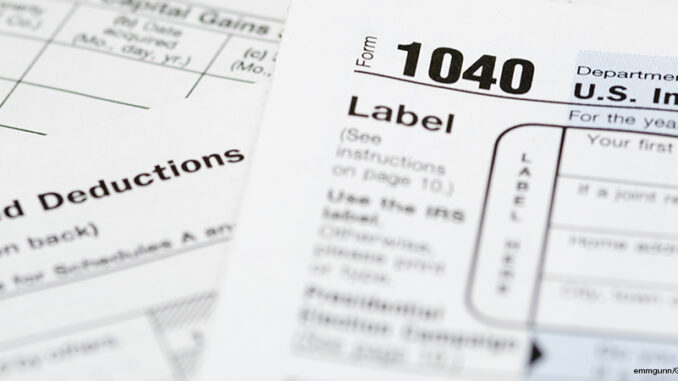
Despite continuing pleas from Democrats and ongoing legal battles, Donald Trump still refuses to release his tax returns. The state of New York even tried to sue for them, but that case remains tied up in court. Now, the state of California has responded by creating a new and controversial law that may even change who appears on the upcoming 2020 primary ballot.
What’s The New Law?
Last week, California Governor Gavin Newsom–a Democrat–signed SB27 into law. The new law requires that in order for a candidate’s name to appear on the presidential primary ballot, he or she must submit five years of tax returns by November. The information will then be posted online for the general public to see. (The law would apply not only to presidential candidates but to candidates for governor as well.)

Democrats argue that this law is necessary in order to reduce corruption and improve transparency in the federal government. They say that the American people have a right to know if candidates for the highest elected offices have participated in fraud, tax evasion, or other illegal financial activities. Important to note is that the new law would only affect the primary election, not the general election. This is important because it means that both parties will still be represented on the 2020 general election ballot, whether their candidates have cooperated with the law or not.
But Is It Legal?
Governor Newsom says yes, but the Republican Party disagrees. Because Trump refuses to release his tax returns, under this law his name won’t appear on the upcoming 2020 primary election ballot in California. According to Republicans, this is a form of voter suppression, because it denies Republicans the right to vote for Trump in their own primary if they wish to do so. Opponents are also concerned that this law could eventually lead to candidates being required to release other personal information, such as health records and school transcripts.
Democrats, however, say that the right to determine the requirements for a candidate to appear on the ballot is a state’s right, much the same way that states can determine the location of polling places, whether to use paper or electronic ballots, and how to format their ballots.
So What’s Next?
The California Republican Party, Trump, and the Republican National Committee have already filed lawsuits calling the new law unconstitutional and a direct attack on the president. Because this law is the first of its kind, there’s no precedent–meaning that it’s never been tested or challenged before, so it’s hard to predict what the courts will decide.
But legal experts say that the battle will be a tough one for Democrats and the state of California to win. Political parties operate independently of the government. According to the Constitution, they are allowed to decide who their leaders will be on the ballot, without governmental interference. States also are not allowed to create new qualifications for federal offices–including the presidency.
